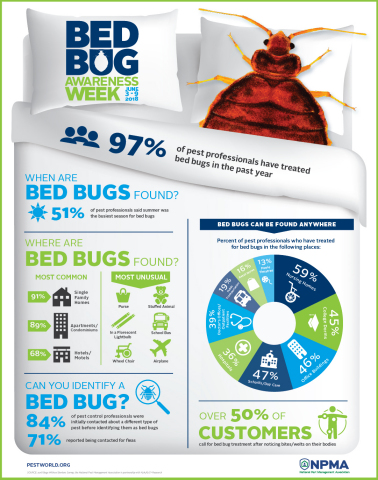The Impacts Of Pest Management On The Atmosphere: An Overview To Accountable Solutions
The Impacts Of Pest Management On The Atmosphere: An Overview To Accountable Solutions
Blog Article
Authored By-Briggs Peck
They claim 'avoidance is much better than cure,' and this expression holds true when it concerns pest control. You may recognize the value of keeping your home or service free from parasites, however have you ever considered the ecological effect of the methods utilized to accomplish this?
In this conversation, we will certainly discover the different bug control methods offered and their potential effects on the atmosphere. From making use of chemical pesticides to natural parasite control approaches and lasting strategies like incorporated parasite monitoring, there is much to learn about the choices we make and their effect on the world around us.
So, distort up and get ready to uncover the fact behind pest control methods and their environmental effects.
Chemical Pesticides and Their Environmental Influence
Chemical chemicals have a considerable ecological influence, which can be better understood by analyzing their usage and results.
When you use chemical pesticides to regulate parasites, they can end up damaging not only the targeted insects however also helpful pests, birds, and other pets. These pesticides frequently linger in the atmosphere, contaminating soil, water, and air. They can additionally gather in the food web, posing a hazard to human health.
In addition, chemical pesticides can interfere with communities by exterminating natural predators of bugs, resulting in an inequality in the ecological community. Furthermore, some pesticides have been linked to the decrease of pollinators like , which are important for plant recreation.
It is essential to think about these environmental influences when considering insect control approaches.
Natural Parasite Control Approaches and Their Eco-Friendliness
All-natural parasite control approaches offer a green choice to chemical pesticides. By utilizing residential termite treatment and approaches, you can efficiently manage bugs while lessening harm to the environment. Here are four eco-friendly parasite control techniques to think about:
1. Organic control: Present natural killers, such as ladybugs or nematodes, to control pest populations normally.
2. Physical obstacles: Usage nets, displays, or row covers to physically stop insects from reaching your plants.
3. Buddy growing: Expand pest-repelling plants along with your plants to discourage parasites normally. For example, planting marigolds can fend off aphids and other bugs.
4. flea treatment -made treatments: Produce do it yourself bug control solutions utilizing active ingredients like vinegar, cooking soft drink, or essential oils. These natural treatments can assist ward off pests without damaging chemicals.
Integrated Parasite Monitoring: A Sustainable Approach
To successfully manage pest populaces while lessening harm to the atmosphere, think about adopting an incorporated insect administration strategy, which concentrates on sustainable practices.
Integrated Parasite Management (IPM) is an all natural strategy that combines different parasite control techniques to achieve long-term parasite management goals. It aims to reduce the use of chemical pesticides and instead emphasizes prevention, surveillance, and using non-chemical controls.
By integrating multiple approaches, such as biological control, social practices, and mechanical approaches, IPM gives a reliable and sustainable option for parasite control.
This technique not just decreases the negative effect on the setting yet likewise advertises the overall health of communities.
Verdict
So, now you recognize the ins and outs of insect control methods and their effect on the environment.
From the harmful effects of chemical pesticides to the eco-friendliness of all-natural pest control approaches, it's clear that we need to prioritize sustainable techniques like incorporated pest monitoring.
Just like a delicate ecological community, finding the right equilibrium is vital for preserving our setting and keeping insects at bay.
